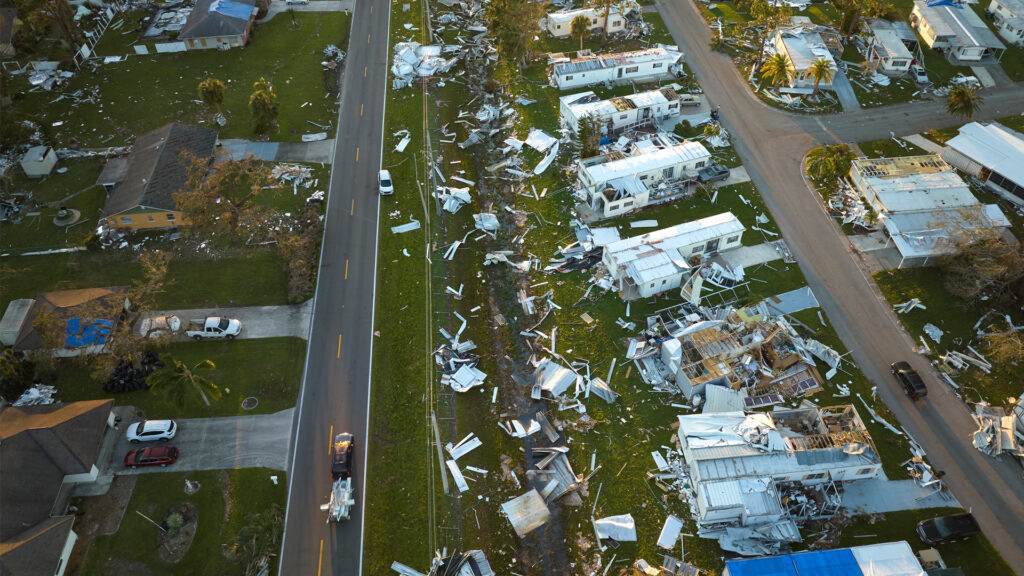By Doug Heller and Sharon Cornelissen, Consumer Federation of America
Addressing the homeowners insurance crisis in Florida will require greater political will than we have seen in Tallahassee in recent years.
Floridians face skyrocketing homeowners insurance premiums and many have received letters that their policies will not get renewed. Homebuyers struggle to find affordable insurance, which they need to close on a mortgage. More and more homeowners are “going bare,” forgoing insurance altogether, as they see no reasonable alternatives. We found that nationwide more than 6 million homeowners are uninsured. But metro Miami stands out, with nearly one in seven homeowners lacking insurance — twice the national average.

Nobody wants to think about insurance until they need it. But insurance is essential for economic security and resilience, as most owners carry the majority of their wealth in their home. When disaster strikes an uninsured home, government relief is often woefully inadequate. The Federal Emergency Management Agency pays out about $3,600 on average after declared disasters (with a maximum of $42,500), which is not nearly enough to recover from a catastrophic loss. Without insurance, the risk of going from homeowner to homeless is only one major storm away.
Why have insurance premiums risen so severely in recent years? While the insurance industry likes to point to some bad actors that defraud the system or consumers’ rights to take an insurance company to court, these are not the drivers of Florida’s insurance price spikes and withdrawals.
Certainly, the rising costs of construction and building materials have driven up costs of claims. Climate change also brings more frequent and intense natural disasters, including new forecasts for a hyperactive hurricane season in the Atlantic Ocean. These disasters not only increase costs but also lead to increasing expectations of loss, which drives up rates as insurance pricing attempts to predict the future. That emboldens a third cause of higher premiums: the unregulated, global reinsurance companies that home insurers rely on to hedge their risk when they cover our homes.
With so much market power, these reinsurance companies (often based in Bermuda or Switzerland), have increased their U.S. prices for an unprecedented six years straight. Much of that gets dumped into the premium homeowners pay.
The Florida Office of Insurance Regulation (OIR) needs to take this crisis more seriously. OIR was not there for homeowners whose Hurricane Ian claims got lowballed, delayed and denied by insurers, nor has it been aggressive enough to protect consumers from a slew of financially flimsy insurers. At the moment, it won’t even join the majority of states participating in a nationwide effort to collect and share critical ZIP-code data on home insurance costs and availability across the country.

The Legislature and Gov. Ron DeSantis must focus on better protecting Florida property owners. That means not kicking people off the rolls of Citizens and forcing them to pay much higher premiums to small, untested startup insurance companies. It means holding insurers accountable when they cheat people on covered, legitimate claims. Lawmakers should mandate premium discounts for homeowners when they and their communities make investments to strengthen homes and roofs.
At the same time, Congress should adopt a federal reinsurance program — like it did for terrorism coverage after 9/11 — to diminish the pain caused by global prices. One such proposal will replace the debt-ridden National Flood Insurance Program with a program that gives homeowners access to insurance that covers all perils while increasing resources for Americans to make climate resilient property upgrades.
Finally, insurers, housing developers, local and state policymakers and community members have to work together to tackle tough questions about land use and the increasing climate risk that has an undeniable role in this crisis. The urgency of the current crisis, and the threat to hundreds of thousands of uninsured Floridians, demands that insurance companies become partners with the consumers who have paid premiums for decades but now find themselves overcharged or uninsured.
Doug Heller is the director of insurance and Sharon Cornelissen is the director of housing at the Consumer Federation of America. This opinion piece was originally published by the Orlando Sentinel, which is a media partner of The Invading Sea.
If you are interested in submitting an opinion piece to The Invading Sea, email Editor Nathan Crabbe at ncrabbe@fau.edu. Sign up for The Invading Sea newsletter by visiting here.




Well said and we agree. Our property insurance dropped us a while back 2010 maybe. We think it was bc of a big Oak tree in our front yard. We never missed a payment for 25 years then all the sudden we were dropped.